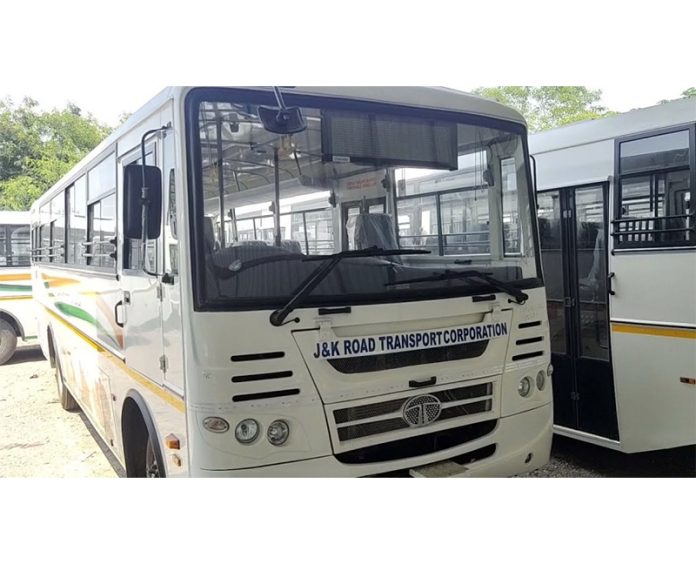Corporation in soup, may have to cough up crores more
Fayaz Bukhari
Srinagar, Feb 29: A major scam has surfaced in Jammu and Kashmir Road Transport Corporation (JKRTC) wherein the Corporation has favoured a contractor by reimbursing crores of rupees commission to him despite opposition by the Financial Advisor and General Manager(P).
This may open flood gates as the previous contractors of the Corporation, who has supplied trucks and buses to the Corporation against similar tenders, may also demand reimbursements.
M/s Qureshi Transport Company was the successful bidder of the tender floated by the JKRTC in September 2020 (allotment order No. No. JKRTC/GM/Load/Plg& Sts/CHT/394 dated 17.9.2020) for engagement of Civil Hired Transport for supply of trucks to meet out the leftover demand of the JKRTC. The contract expired in September 2022 but it was extended by the Corporation to him on previous terms and conditions.
As per the records of the JKRTC, the contractor approached the High Court in 2022 as the then MD JKRTC refused to initiate the arbitration on charging Commission on basic freight rate instead of end freight on account of purchase of High-Speed Diesel (HSD), M Oil and Trip Money.
The High Court appointed former Chief Justice Himachal Pradesh Justice Mansoor Ahmed Mir as Sole Arbitrator of the case. The Arbitrator directed the JKRTC to file response and latter constituted a committee (vide order No: JKRTC/ GMA/ Sgr/642 dated25.8.2023) which under the chairmanship of the MD decided to go for negotiated settlement despite the opposition by the FA&CAO and General Manager (P).
The JKRTC instead of defending the arbitration case conceded to the demands of the contractor and ordered the sanction of Rs 4.25 crore reimbursement to him.
“…the sanction is hereby accorded to the release of Rs 4,25,01747 in favour of M/s Qureshi Transport Company…on account of M.O, Trip Money and HSD,” read the order (JKRTC/GML/Sgr/862 dated 13-01-2024) issued by the JKRTC.
As per section 15(2) of RTC Act, the MD of the JKRTC has to obtain the views of FA&CAO on every proposal involving revenue and expenditure of the corporation. But the MD ignored the suggestions given by the FA&CAO who pleaded for contesting the case and also seeking the opinion of the Law Department.
“…it is suggested that the Corporation should contest the case before court Arbitrator on its merits, as the Corporation has floated NIT, allotted tender to L1 bidder, signed agreement and rejected others on the terms & conditions of the same NIT. The Corporation has deducted commission afford by the firm on end rates (Agreement, and terms and conditions of NIT)”, reads the note (dated 09/11/2023) written by the FA&CAO on the minutes of the meeting issued by the JKRTC (Under no. JKTRC/GML dated 03.11.2023).
The General Manager Planning in his note in response to the minutes of the meeting has said that the Corporation has strong grounds to defend the arbitration case.
He stated that the contractor has not raised the issue about any kind of ambiguity in the freight structure/pattern applicable to JKRTC at the time of pre-bid meeting, acceptance of allotment order, execution of agreement, but has approached JKRTC at the end the contract period.
“It is worth reminding here that the said firm besides other firms had supplied trucks to JKRTC to meet its leftover demand during the past as well against valid allotment orders and agreements executed on the same terms and conditions and JKRTC had deducted commission on applicable end freight rates; and no objections on deduction of commission on end freight /rates had been raised by any of the firms including the said firm,” he stated.
“Therefore, any kind of negotiations with the firm on deducting the commission on basic freight rate instead of end freight rate shall be illegal and breach of contract. Besides, this will dilute the sanctity of the tender,” he stated.
“This will open the flood gate for previous contractors of the Corporation, who have supplied Trucks/Buses to meet the leftover demand of the Corporation against similar tenders and the corporation may have to pay huge amounts to other firms,” he further stated.


